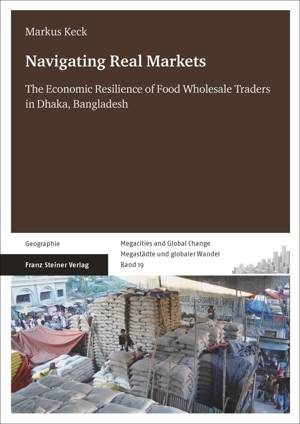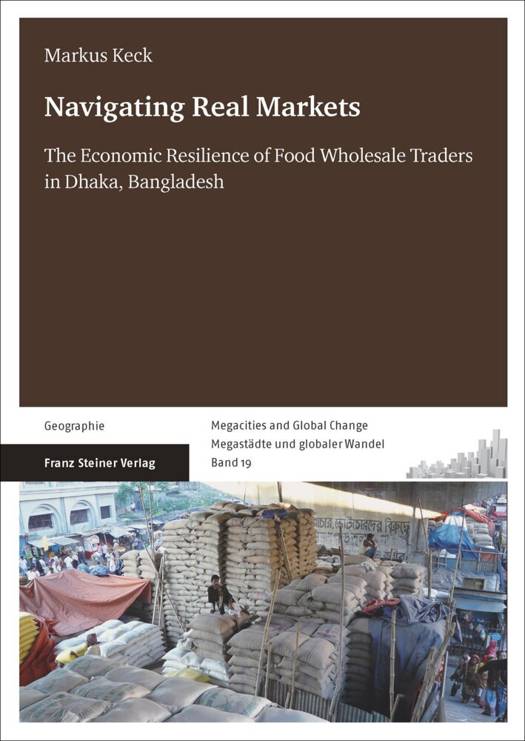
- Afhalen na 1 uur in een winkel met voorraad
- Gratis thuislevering in België vanaf € 30
- Ruim aanbod met 7 miljoen producten
- Afhalen na 1 uur in een winkel met voorraad
- Gratis thuislevering in België vanaf € 30
- Ruim aanbod met 7 miljoen producten
Zoeken
Navigating Real Markets
The Economic Resilience of Food Wholesale Traders in Dhaka, Bangladesh
Markus Keck
Paperback | Engels | Megacities and Global Change / Megastädte und globaler Wandel | Megastädte und globaler Wandel | nr. 19
€ 116,45
+ 232 punten
Uitvoering
Omschrijving
In 2007 and 2008, Bangladesh was subject to a food crisis, which intensely hit the country's capital. Dhaka's food supplies were repeatedly disconnected due to floods and cyclones and world market prices for staple foods increased dramatically. In the middle of this situation, the national government launched eviction drives of numerous informal markets in Dhaka. Yet, despite of all these constraints, food traders still managed to guarantee steady supplies. Who are these traders and how did they make Dhaka's food system robust enough to avoid a catastrophe? This study concentrates on Dhaka's wholesale markets where food enters the city, and from where it flows into the urban food system. The book offers a fresh analytic perspective for economic geography by placing emphasis on "real markets", their institutional architectures, their actors and networks, and their specific political arena. Its focus is on the resilience of Dhaka's food wholesale traders. The study demystifies megacities as synonyms for human misery and hardship - not by overlooking poverty, exclusion and vulnerability, but by highlighting people's strengths, their confidence and their capacities to cope with crisis.
Specificaties
Betrokkenen
- Auteur(s):
- Uitgeverij:
Inhoud
- Aantal bladzijden:
- 240
- Taal:
- Engels
- Reeks:
- Reeksnummer:
- nr. 19
Eigenschappen
- Productcode (EAN):
- 9783515113793
- Verschijningsdatum:
- 11/05/2016
- Uitvoering:
- Paperback
- Formaat:
- Trade paperback (VS)
- Afmetingen:
- 170 mm x 239 mm
- Gewicht:
- 417 g

Alleen bij Standaard Boekhandel
+ 232 punten op je klantenkaart van Standaard Boekhandel
Beoordelingen
We publiceren alleen reviews die voldoen aan de voorwaarden voor reviews. Bekijk onze voorwaarden voor reviews.







